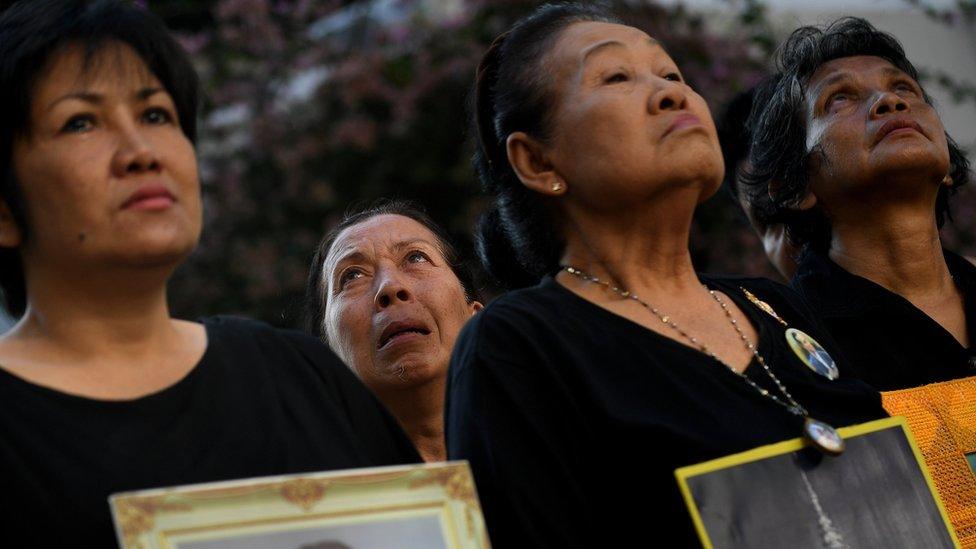Thailand presses Google over online royal insults
- Published
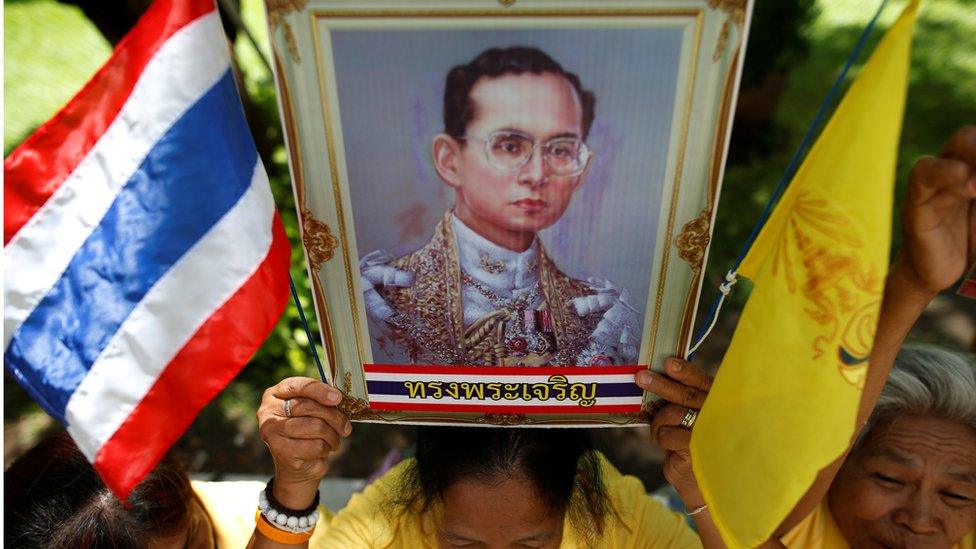
Thailand is mourning the death of King Bhumibol - who is protected from insult by law
Google has agreed to co-operate with the removal of online content insulting Thailand's monarchy, the country's deputy prime minister says.
Prajin Juntong said he had met Google representatives to complain about material found using the search engine and on YouTube, a Google subsidiary.
Google said it was following its existing policies on content removal.
Thais, who have the some of strictest lese majeste laws in the world, are mourning King Bhumibol Adulyadej.
Mr Juntong said more than 100 pieces of content insulting to the monarchy have been found on Google services since he died on 13 October.
A spokesperson for Google told Reuters news agency that the company was following its guidelines for removal requests.
"When we are notified of content that is illegal through official processes, we will restrict it in the country where it's illegal after a thorough review," they said.

Google receives thousands of takedown requests from law enforcement and governments every year
Google periodically publishes data on such requests in what it calls "transparency reports", external.
In the six months between July and December 2015, it received 33 requests from the government of Thailand to remove content.
Those requests covered 1,566 individual content items, 97% of which were cited as "government criticism".
Google says it complied with 85% of the Thai government's requests - around 1,300 items - though it did not publish full details on how many items were restricted from viewing within Thailand or removed completely.
'Insult or threat'
Article 112 of Thailand's criminal code says anyone who "defames, insults or threatens the king, the queen, the heir-apparent or the regent" will be punished with up to 15 years in prison.
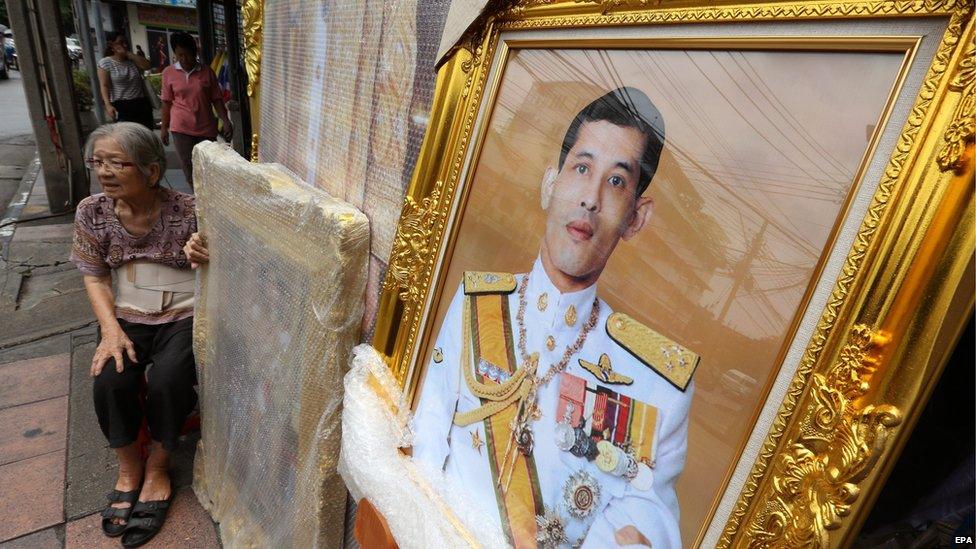
Thai royal family members - such as Crown Prince Vajiralongkorn - are covered by the laws
This has remained virtually unchanged since the creation of the country's first criminal code in 1908, although the penalty was toughened in 1976.
However, there is no definition of what constitutes an insult to the monarchy.
Complaints can be filed by anyone and they must always be formally investigated by the police.
The details of the charges are rarely made public for fear of repeating the alleged offence.
- Published6 October 2017
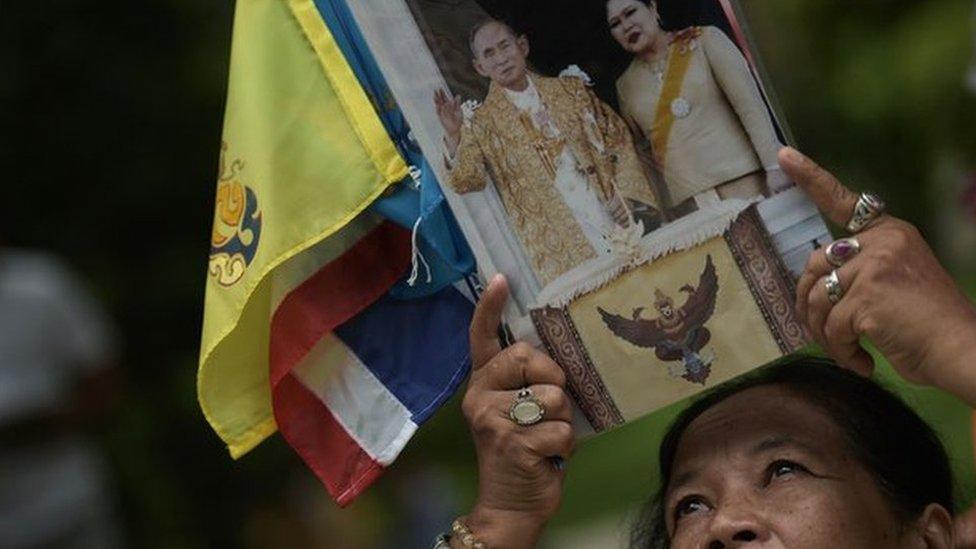
- Published16 October 2016
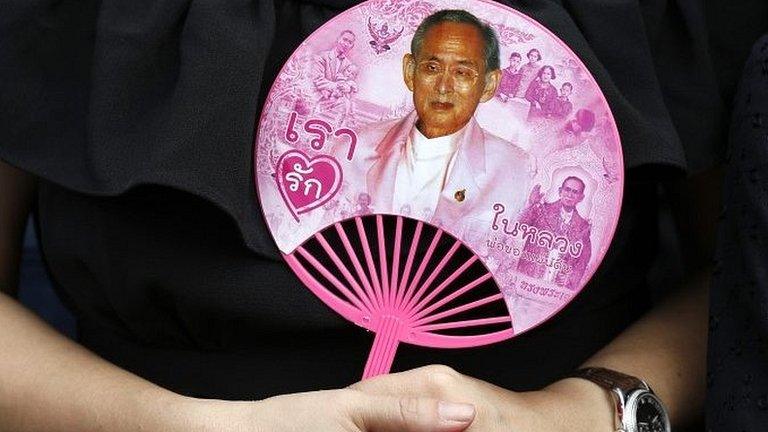
- Published14 October 2016
